Hydration is extremely important when it comes to exercise. Hydration can be crutial to your overall fitness. Below we have attached an article on facts about hydration from wowshopper.com. With the summer here make sure that you stay hydrated.
Facts about Hydration
--------------------------------------------------------------------------------
Staying hydrated during the course of exercise is crucial because water is what delivers oxygen to the muscles, fueling them in the course of your work-out. Without adequate fluids, the cardiovascular system is strained, the probability of heat injury skyrockets, and performance is impaired.
The most serious effect of dehydration during exercise is the inability to adequately sweat and cool off. This is more serious than it sounds since the body's chief method of heat loss in a hot-dry temperature can be life threatening. In fact, 80% of heat loss happens through perspiration.
Add to this the fact that it is common for a person to dehydrate by 2%-6% of their body weight during exercise and that as little as 1% weight loss during exercise begins to impair performance. Unfortunately, feeling thirsty isn't an adequate indicator that it's time to drink. By the time a person feels thirsty they are usually dehydrated. Studies show that the average person does not drink nearly the amount of fluids required to prevent dehydration. If water or some other fluid is available, most people will drink only enough to replace 2/3 of the fluids lost.
It's surprising how quickly dehydration affects your performance. With vigorous exercise in hot or humid conditions, you can lose 2-3 liters of water per hour. For a 150 pound person, a 1% body weight loss equals slightly less than one liter. This means a dehydrated state in less than one half hour, serious effects in an hour, and a possible threat to your life and safety in two hours.
There are several ways to ensure proper hydration, according to the American College of Sports Medicine. First, start with a large drink, about 16oz., 2 hours before going out to exercise. This gives your body plenty of time to regulate its fluid levels prior to exercising and helps delay or avoid the effects of dehydration during exercise. Second, during exercise it is very important to drink before becoming thirsty and to drink at frequent intervals to replace fluid lost through sweating. It takes approximately eight fluid ounces of fluid to replace each pound of body weight lost. Third, studies show that people drink more if the drink tastes good. In other words, using a sweetened or flavored drink, such as an energy drink, decreases the likelihood of dehydrating.
Finally, and probably most important, is bringing adequate amounts of fluids with you when you exercise. Unless someone exercises in an area where drinks are available every 15 minutes or so, it's important to carry water with you. Finding a system that is comfortable and works for the sport is becoming easier all the time. Water bottles, easy to use water filters, products like the Fuel Belt, and fanny packs designed to carry water are all readily available; it's important to find a drinking system that works for you and your sport and to use it regularly. Select a drinking system that keeps water cool. The 45-55 F. range is optimal for quickest absorption and cooling of your core temperature.
Be alert to the signs of heat illness and stop exercising until you can get enough to drink and lower your body temperature. Nausea, headaches, dizziness, and a stoppage of perspiration are all indications of heat injury. The good news is that, because 60% of body weight is water, the simple act of drinking 8oz. every 15-20 minutes during exercise prevents dehydration, the resulting heat injury, and increases efficiency and performance.
--------------------------------------------------------------------------------
Staying hydrated during the course of exercise is crucial because water is what delivers oxygen to the muscles, fueling them in the course of your work-out. Without adequate fluids, the cardiovascular system is strained, the probability of heat injury skyrockets, and performance is impaired.
The most serious effect of dehydration during exercise is the inability to adequately sweat and cool off. This is more serious than it sounds since the body's chief method of heat loss in a hot-dry temperature can be life threatening. In fact, 80% of heat loss happens through perspiration.
Add to this the fact that it is common for a person to dehydrate by 2%-6% of their body weight during exercise and that as little as 1% weight loss during exercise begins to impair performance. Unfortunately, feeling thirsty isn't an adequate indicator that it's time to drink. By the time a person feels thirsty they are usually dehydrated. Studies show that the average person does not drink nearly the amount of fluids required to prevent dehydration. If water or some other fluid is available, most people will drink only enough to replace 2/3 of the fluids lost.
It's surprising how quickly dehydration affects your performance. With vigorous exercise in hot or humid conditions, you can lose 2-3 liters of water per hour. For a 150 pound person, a 1% body weight loss equals slightly less than one liter. This means a dehydrated state in less than one half hour, serious effects in an hour, and a possible threat to your life and safety in two hours.
There are several ways to ensure proper hydration, according to the American College of Sports Medicine. First, start with a large drink, about 16oz., 2 hours before going out to exercise. This gives your body plenty of time to regulate its fluid levels prior to exercising and helps delay or avoid the effects of dehydration during exercise. Second, during exercise it is very important to drink before becoming thirsty and to drink at frequent intervals to replace fluid lost through sweating. It takes approximately eight fluid ounces of fluid to replace each pound of body weight lost. Third, studies show that people drink more if the drink tastes good. In other words, using a sweetened or flavored drink, such as an energy drink, decreases the likelihood of dehydrating.
Finally, and probably most important, is bringing adequate amounts of fluids with you when you exercise. Unless someone exercises in an area where drinks are available every 15 minutes or so, it's important to carry water with you. Finding a system that is comfortable and works for the sport is becoming easier all the time. Water bottles, easy to use water filters, products like the Fuel Belt, and fanny packs designed to carry water are all readily available; it's important to find a drinking system that works for you and your sport and to use it regularly. Select a drinking system that keeps water cool. The 45-55 F. range is optimal for quickest absorption and cooling of your core temperature.
Be alert to the signs of heat illness and stop exercising until you can get enough to drink and lower your body temperature. Nausea, headaches, dizziness, and a stoppage of perspiration are all indications of heat injury. The good news is that, because 60% of body weight is water, the simple act of drinking 8oz. every 15-20 minutes during exercise prevents dehydration, the resulting heat injury, and increases efficiency and performance.
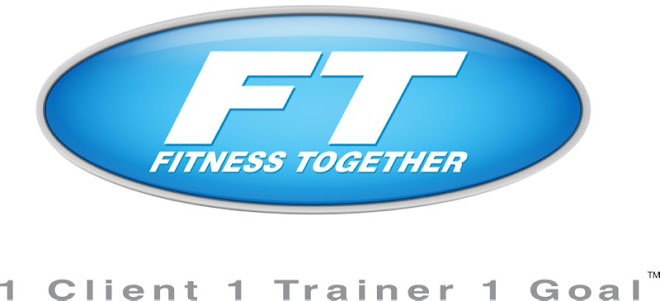



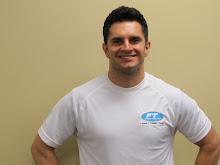

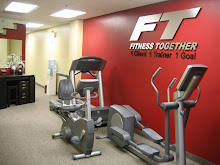
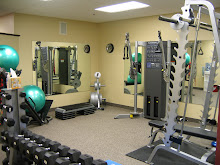
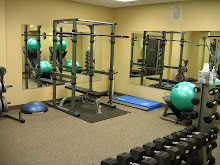
No comments:
Post a Comment